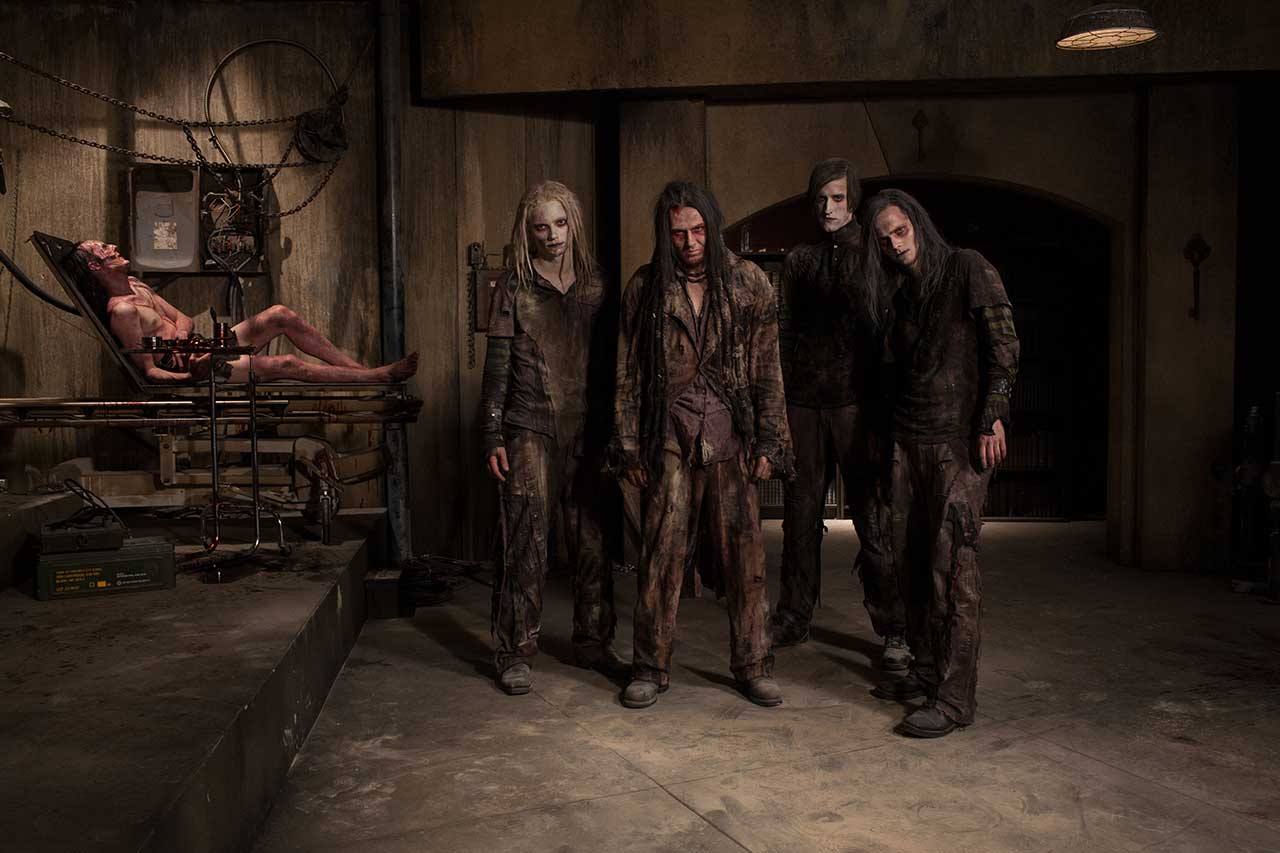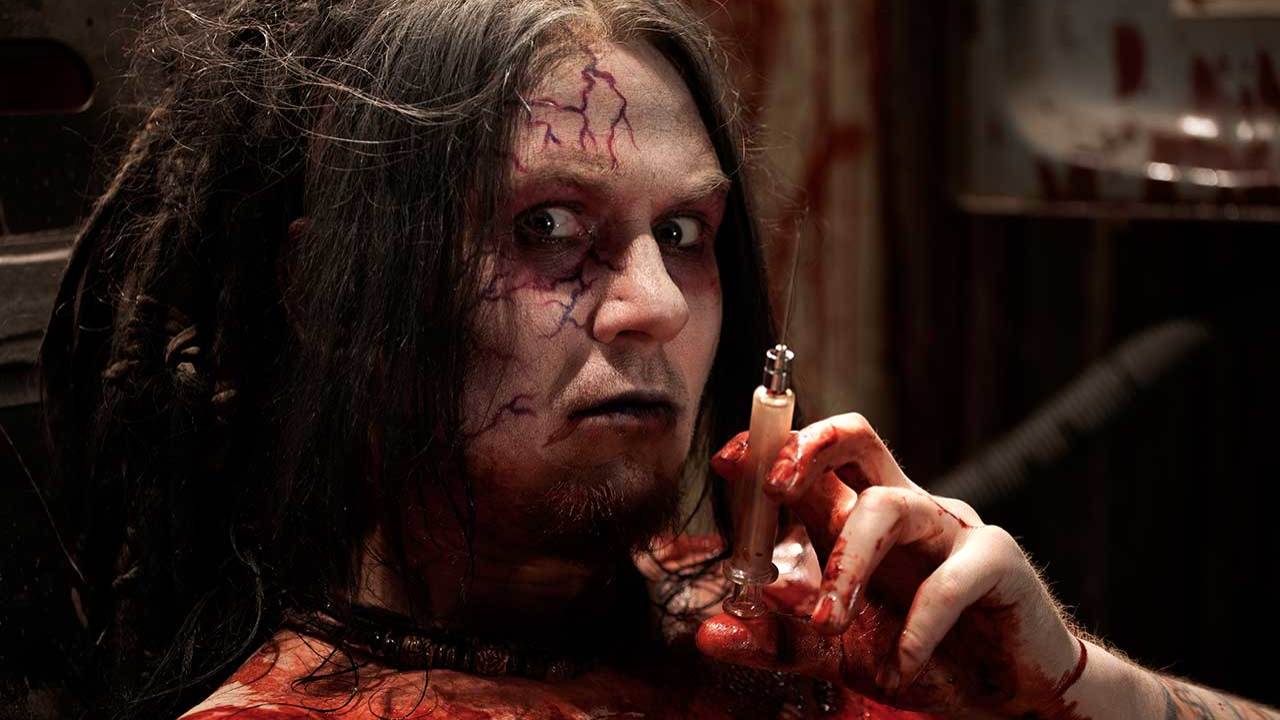As an artist who kept his face hidden by trollish prosthetics for much of his career, during which he dramatically reinvented himself on more than one occasion, Mortiis is surely no stranger to mystery. But in recent years he has kept fans guessing for rather different reasons, having embarked upon an unofficial hiatus in 2011 that saw him abandoning activities, seemingly forever. But against the odds, he and his band have climbed out of their crypt after almost five years of silence, not only returning to the stage but offering up a new full-length of industrial metal entitled, perhaps aptly, The Great Deceiver. So why the half-decade wait and what was it that led to this self-imposed exile in the first place?
“Mainly it was the fact that we struggled to find a record label that would put an album out and not be completely greedy about it,” begin Mortiis in typically straight-talking fashion. “We passed on… I can’t remember how many deals. I mean, I’m not looking for a million dollars, I’m not even looking for an advance, I’m just looking for a fair deal, you know?
“Eventually we decided to start making an album anyway,” he continues, “and I had a connection at a studio that meant we could spend more or less as much time at the studio as we wanted. And we did, we spent months. It was ridiculous, it was like we were in this fog of never ever being actually done, always going back and redoing stuff. I think that was good though, because the album went from being good to fucking great in my opinion. But I got disillusioned.”
This disillusionment would lead to the completed album sitting unreleased for over a year while the Norwegian decided whether to release it via his own label Omnipresence, sign to another label despite his misgivings or give up music altogether. In the end, he chose the former option and the album is now set for a March release. As it turns out though, this decision was the result of considerable soul-searching.
“I must have quit the record industry five times in frustration,” he sighs, “I was telling my manager, ‘Fuck this, I’m done’. I work in various places with mentally disabled people and do a lot of night shifts and I said, ‘Dude, do you realise I can do one week work here and I make more money than I do with [previous label] Earache in one fucking year? My wife actually says, ‘Why the fuck do you keep doing this? You’re wasting your time, you’re always pissed off, disappointed and you still keep going back’. So obviously the answer this is what I want to do. It’s not about the money but I want the respect – that’s why I don’t sign to a label. Finally I said, ‘Fuck it, I’ve put out records on my own, we can do this on our own, fuck labels, they don’t care about us, why should we care about them?’”

As daunting as that approach might seem, Mortiis at least has a fair amount of past experience to draw upon, having used Omnipresence to release his previous album (2010’s Perfectly Defect) not to mention his former label Dark Dungeon Music with which he issued a slew of releases during the nineties. Nevertheless, despite the control and financial advantages that being his own label boss has brought, there have still been considerable challenges to contend with.
“One thing artists don’t have is the network of connections that labels spend decades and a ton of money building up,” Mortiis reflects. “That’s a lot for a band to build up from scratch. Thankfully I’m fairly well connected and we also hired a handful of people who are connected – so now if something goes wrong I can’t blame anyone but myself and a few people I work closely with. It’s kind of daunting; even though I did put out records in the nineties a lot changed since then, everything went digital and… weird. From a business perspective maybe I should be paying more attention to the music industry, but it bores the fuck out of me. But I know people are panicking, the big fucking artists are pretty much doing porn now just to get attention. It’s pathetic.”
Of course one thing that used to get Mortiis a fair amount of attention – and undoubtedly helped his career in the early years – was that distinctive mask, something he ultimately gave up in exchange for a more traditional use of makeup. While some might think it tempting to don it once more, it turns out that just like record deals, it came with its own restrictions…
“Even with Earache I was fazing out the mask,” he laughs. “I never did it cold turkey because I have to admit I really like that mask. As I told someone the other day, you can’t take a bad photo with a mask. When I took that away I had to work harder to look good visually, but the thing with a mask is that it kind of imprisons you in one thing, there’s not a lot else you can do once you put the mask on. I wanted more freedom, that’s the feeling I’ve had for a long, long time.”
This desire for freedom is more than apparent on the two new videos Mortiis has released, The Shining Lamp Of God and Doppelganger, which offer the first insights into the direction of the new album as well as some pretty grotesque and bloody visuals.
“We just wanted to make a cool fucking video to be honest, it doesn’t have a deep message,” he laughs. “Both videos were filmed during the same weekend, using a lot of the same sets with the same director and crew. I was frustrated with past experiences making videos because I kind of like it when it gets extreme and dangerous and fucked up and – understandably I guess – Earache would always poke sticks in the wheels of our creativity when they felt we were going too far. That was frustrating because a lot of our videos didn’t come out as we wanted them to come out, they were meant to be much more disturbing. I can see it from a commercial point of view – they wanted stations to be able to actually show them – but me being a passionate artist, this time it was like, ‘Let’s just do all the things I wasn’t allowed to do in the past’. So it’s basically me going hog wild on a film set because no one was telling me that I couldn’t!”
With so much happening on the visual and business side of his career, it would be wrong to forget about the most important element of the whole thing; the music. Having shifted from the black metal of his days in Emperor to minimal dark ambient to electronic rock and on to various shades of industrial metal, Mortiis has never stopped evolving musically, and as he explains, new album The Great Deceiver once again marks another shift in sound.
“I think where The Grudge was a noisy record, and Perfectly Defect was a super artsy record without a lot of vocals, this is a lot more traditionally laid out with choruses and refrains,” he considers. “I think it’s got a lot of that pop sensibility and it’s very dynamic, but it’s layered as hell with all sorts of noises and disturbing shit. In short I feel it’s a dense, atmospheric, dark record. And that makes me happy.”
New album The Great Deceiver is out March 4, via Omnipresence
